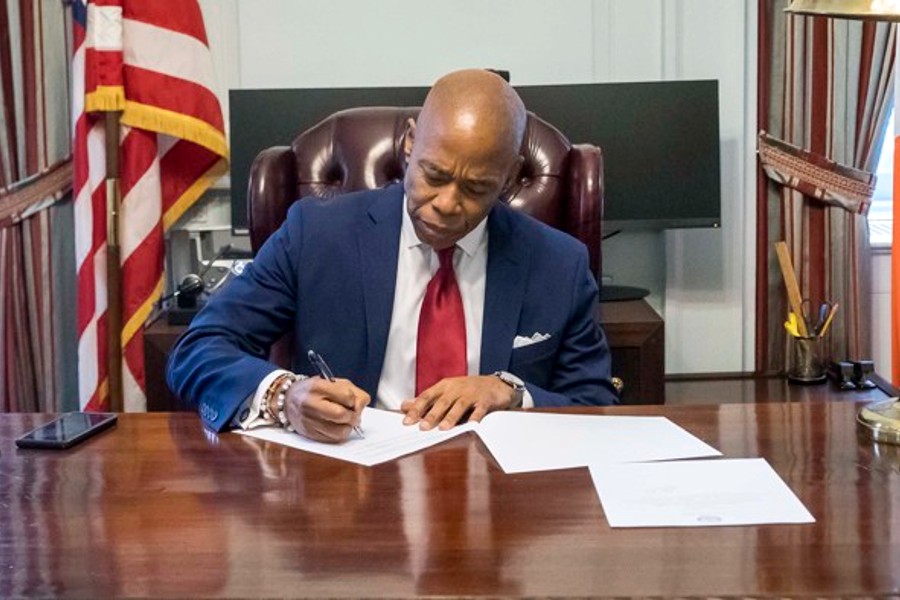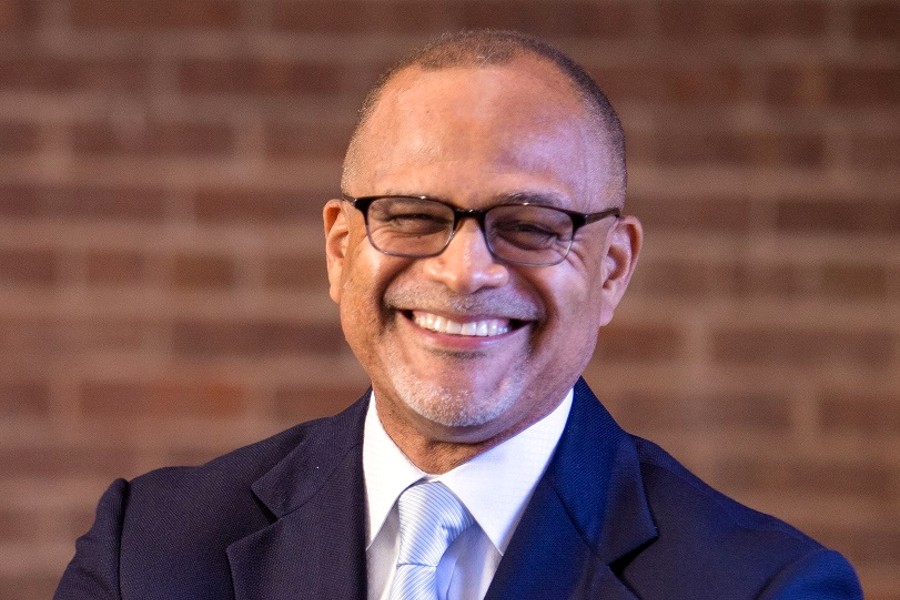
New York City Mayor Eric Adams today released New York City’s $106.7 billion Fiscal Year 2024 (FY24) Executive Budget.
Mayor Adams unveiled the largest Executive Budget in city history to protect critical programs that support working New Yorkers, while simultaneously preparing for economic headwinds by continuing his strong track record of fiscal responsibility. The budget also includes strategic investments that improve New Yorkers’ quality of life, including investments that create sustainability and resiliency programs, strengthen the city’s mental health resources, build out the college-to-career pipeline, and uplift working people.
FY23 and FY24 remain balanced, with outyear gaps of $4.2 billion, $6.0 billion, and $7.0 billion in fiscal years 2025 through 2027, respectively. Growth of $4.0 billion in FY24 over the Preliminary Budget is driven by asylum seeker costs and funding labor settlements with the city’s workforce.
“Our Fiscal Year 2024 Executive Budget prioritizes our working people’s agenda and keeps our city working for the benefit of all New Yorkers. But the challenges we face are real — including the costs of the asylum seeker crisis, the need to fund labor deals, and slowing tax revenue growth — and we must budget wisely,” said Mayor Adams. “The PEG was a success, achieving $1.6 billion in savings across the two fiscal years, and over $3 billion in the out years without a single layoff or service reductions. Further, we did not cut a single penny from libraries or cultural institutions, and adjusted savings targets for agencies to avoid cutting critical needs. This budget also makes upstream investments to uplift working New Yorkers, makes our city more sustainable, strengthen mental health services, and builds out the college-to-career pipeline. We had to make tough choices in this budget and balance competing needs, but our administration always puts the well-being of New Yorkers first, second, and third.”
In the last year, more than 57,000 asylum seekers have arrived in New York City, and more than 35,000 still remain in the city’s care. The city anticipates that the cost of providing shelter, food, clothing, and other services for asylum seekers will be $4.3 billion through the end of FY24.
In the last few months, Mayor Adams also announced labor agreements with District Council 37 and the Police Benevolent Association, which set the economic framework for labor deals with the city’s workforce. The total additional cost of reaching agreements with the city’s remaining unionized workforce is expected to be approximately $16 billion over the duration of the financial plan.
In response to the dramatic growth in the cost of caring for asylum seekers and the need to add funds to support labor deals, Mayor Adams implemented a Program to Eliminate the Gap (PEG) in the Executive Budget to reduce costs and promote efficiency. The PEG achieved $1.6 billion in savings across FY23 and FY24 without laying off a single employee or cutting any services. This PEG was applied strategically, and the Adams administration did not remove a single cent from the budgets of New York City’s public libraries or the New York City Department of Cultural Affairs, which funds museums and other cultural institutions, out of concern that reductions in budgets at this time would negatively impact their ability to provide core services. Targets were also reduced for numerous other agencies — including the Fire Department of the City of New York, the New York City Department of Sanitation (DSNY), the New York City Department of Parks & Recreation, the New York City Department of Youth & Community Development, the New York City Human Resources Administration, the New York City Department of Homeless Services, and more — that could not sustain full PEG cuts without jeopardizing public safety, health, or other critical services for New Yorkers. The administration continues to work with agencies to identify ways to operate more efficiently while delivering effective services to all New Yorkers.
Tax revenues increased by $2.1 billion in FY23 and $2.3 billion in FY24, driven by better-than-anticipated growth in personal income tax, business tax, and sales taxes, and helped maintain balance. Financial experts widely predict an economic slowdown later this year, which will in turn slow city tax revenue growth in the out-years.
The FY24 investments include:
Uplifting Working People
- Helping more New Yorkers claim the Earned Income Tax Credit and other tax benefits by expanding the NYC Free Tax Preparation program ($1.6 million).
- Increasing outreach to New Yorkers about cash assistance, Supplemental Nutrition Assistance Program (SNAP) benefits, Medicaid, and more with New York City benefits ($5.3 million).
- Adding more attorneys and specialists to the New York City Commission on Human Rights’ Source of Income Unit as part of “Housing Our Neighbors: A Blueprint for Housing and Homelessness” and the administration’s ongoing efforts to fight discrimination against New Yorkers who rely on housing vouchers ($1.3 million).
- Expanding free broadband access from 129 to 202 New York City Housing Authority developments through the Big Apple Connect program ($8.7 million).
- Adding child care, workforce, and business portals online, and increasing the capabilities of the MyCity platform ($19.3 million).
Improving Sustainability and Resiliency
- Supporting the tenets of “PlaNYC: Getting Sustainability Done,” including:
- Expanding DSNY’s curbside organics program citywide ($23.2 million).
- Supporting climate education in classrooms across all subjects and grade levels, as well as providing climate education training to teachers ($2.1 million).
Strengthening the City’s Mental Health Resources
- Baselining funding and continuing the expansion of the Behavioral Health Emergency Assistance Response Division (B-HEARD) program into the remainder of the Bronx, as well as additional high-need neighborhoods in other boroughs ($27 million).
- Supporting mental health services for children in family shelters via telehealth as part of the “Housing Our Neighbors” blueprint ($1 million).
- Developing digital access to mental health support, in collaboration with New York state, to consolidate and streamline how New Yorkers with serious mental illness access services ($1 million).
- Increasing the capacity of clubhouses that provide peer-led support in high-need areas citywide ($2 million).
- Launching the School Tele-Mental Health program that gives high school students access to telehealth services ($9 million).
Building Out the College-to-Career Pipeline
- Supporting the City University of New York’s (CUNY) Inclusive Economy Initiative programs ($4.8 million), including:
- Supporting its Industry-Campus Backbone Initiative, in which staff engage with employers to secure industry-specific internships and job opportunities for students and help update curriculum to match current trends.
- Investing in the Boosting CUNY Career Capacity program, which links students with industry experts who give academic and career advice.
- Investing in the Medgar Evers College Brooklyn Recovery Corps, which connects 200 students a year with nonprofits and small businesses in Brooklyn to work on projects that spur economic recovery and growth ($1 million).
- Funding and expanding the CUNY Reconnect program, which helps students who left CUNY because of extenuating circumstances return and earn their degree ($5.8 million).
- Supporting the Mayor’s Office for People with Disabilities’ plan to promote workforce development for people living with disabilities, as announced in second “State of the City” address ($1.2 million).
Latest Posts
- Wells Fargo Shares Economic Impact From Open For Business Fund
- Harlem Rallies For Kamala Harris: A Historic Gathering Of Black Women Leaders
- In Conversation With Ketanji Brown Jackson At The Apollo Theater In Harlem
- Chancellor David C. Banks Appoints Simone Hawkins As Deputy Chancellor For Early Education
- Vibrant Summer Styles Are Making A Comeback 2024
Become a Harlem Insider!
By submitting this form, you are consenting to receive marketing emails from: Harlem World Magazine, 2521 1/2 west 42nd street, Los Angeles, CA, 90008, https://www.harlemworldmagazine.com. You can revoke your consent to receive emails at any time by using the SafeUnsubscribe® link, found at the bottom of every email. Emails are serviced by Constant Contact








